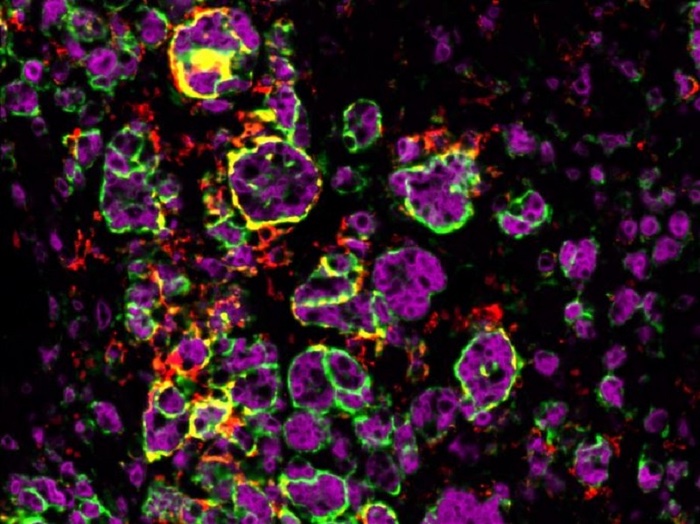A mouse study by researchers at the French National Centre for Scientific Research (CNRS) demonstrates why adrenal gland cancers are more common among women and why prognoses may be worse for them. Their research in male mice, reveals there is greater recruitment of macrophages, which can eliminate tumor cells. Hence, aggressive tumor progression is scarcely seen in male mice; while in female mice, macrophages do not slow the growth of tumors, which eventually metastasize.
The study is published in the journal Science Advances in a paper titled, “Sexually dimorphic activation of innate antitumor immunity prevents adrenocortical carcinoma development.”
“Unlike most cancers, adrenocortical carcinomas (ACCs) are more frequent in women than in men, but the underlying mechanisms of this sexual dimorphism remain elusive,” wrote the researchers. “Here, we show that inactivation of Znrf3 in the mouse adrenal cortex, recapitulating the most frequent alteration in ACC patients, is associated with sexually dimorphic tumor progression.”
Through molecular analyses, the team determined that recruitment of tumor macrophages depends on testosterone.
“By a combination of RNA sequencing, flow cytometry, and IHC analyses, we show that Znrf3 cKO males efficiently recruit macrophages from early stages of preneoplastic transformation, following induction of senescence,” wrote the researchers. “We further show that these macrophages, which differentiate as potent phagocytes, are required for clearance of preneoplastic cells. Although females also mount an innate immune response to preneoplastic transformation, it is delayed compared to males and never achieves efficient clearance of preneoplastic cells.”
After simple administration of the hormone to females, macrophages able to eradicate tumor cells were enlisted to fight. Based on these findings, the scientists conducted another study using data on humans, which revealed the same difference in macrophage recruitment rates between men and women with adrenal cancers.
Their discovery suggests the potential of hormonal stimulation as a treatment for this type of cancer, whose five-year survival rate is less than 30%.
“Together, these data show that phagocytic macrophages are key players in the sexual dimorphism of ACC that could be previously unidentified allies in the fight against this devastating cancer,” wrote the researchers.


